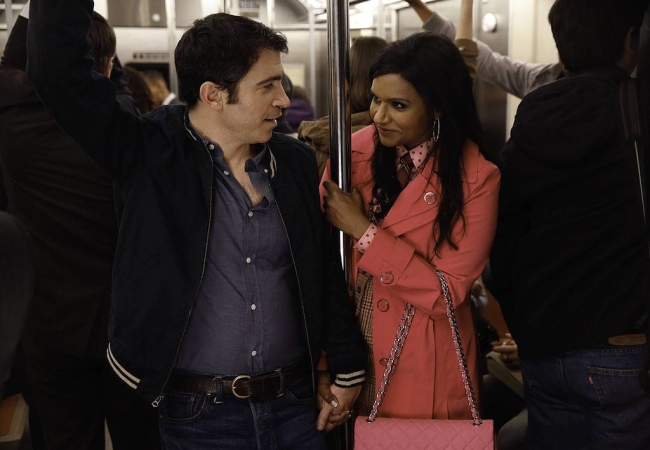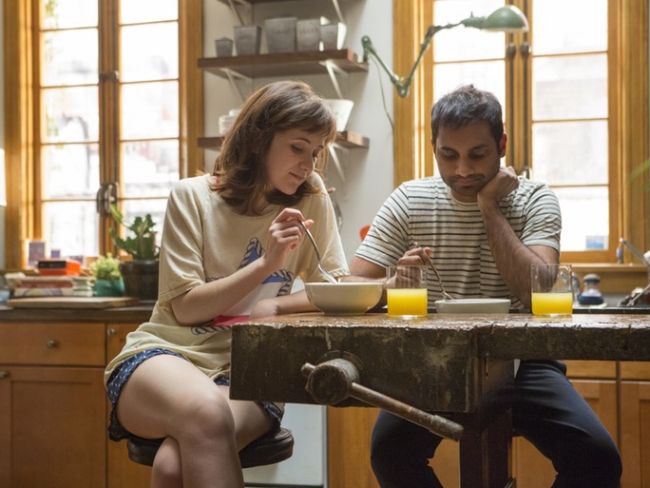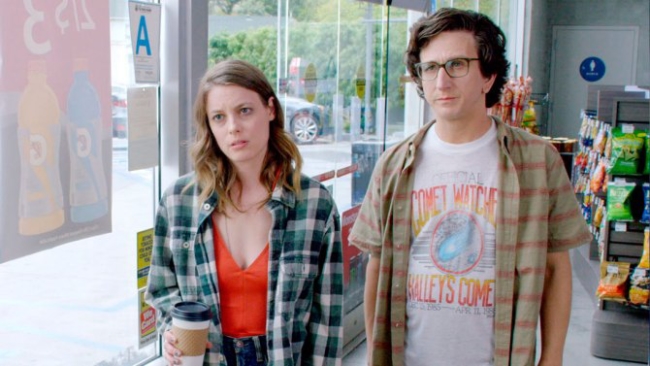It is a truth universally acknowledged that a couple on television must overcome an array of obstacles before being happy together.
While there are few pleasures in life that compare to an airport chase, surprise declaration of love or watching some good ol’ pent up sexual tension flourishing into a new relationship there comes a point where TV shows need to start mirroring real life more accurately, even if just to decrease the the number of people who move to New York in search of high paying columnist jobs and perpetually free brunch buddies. Thanks Carrie Bradshaw. There is a special kind of satisfaction in seeing two people you’ve been rooting for finally realise they love each other like you’ve been telling them all along and live happily ever after. Movies make it easy. There you have 120 minutes to make people love each other and infer they will spend the rest of their lives making babies and reading the morning paper together. Films work as a snapshot of their relationship and audiences can live in ignorant bliss for the rest of their days.
Television works differently though. The longevity of television means that writers have to make the choice, prolong the beginning, break them up, introduce the dreaded love triangle and hope the audience doesn’t get sick of them, or take the risk and see the couple through, embrace the potentially boring 2 year mark and really hype up all their milestones and occasionally throw it back to when they were young and none the wiser. See Jim and Pam.
In the past year however we have seen a dramatic change in the way that sitcoms are approaching the romantic escapades of their protagonists. In attempts to mirror the modern dating landscape and mindset of young people on the prowl television is introducing us to a new generation of apprehensive characters, allowing us to be a fly on the wall in the post romantic boom box over my head era of love.
The Mindy Project introduced us to Mindy Lahiri (Mindy Kaling) an OB/GYN whose life decisions are heavily influenced by those of Meg Ryan and Tom Hanks. The first two seasons follow her as she navigates love and work in New York City, “I’m Sandra Bullock” she declares whilst drunkenly riding a bike away from her ex boyfriend’s wedding. The series has everything that makes a romantic comedy loveable; goofy secondary characters and confidants, getting-ready montages and the sought after ‘started out as enemies but look how our loves blossoms through frustration’ love interest. The latter comes in the form of co worker Danny Castellano (Chris Messina) a divorced co worker who try as he must cannot resist the optimism of counterpart Mindy. The audience is on the edge of their seat as the two come to terms with their feelings, test out the waters and ultimately end up in a steady relationship. Their differences are addressed, both enter the relationship knowing they have conflicting ideas, addressing the awkwardness that could prevail if they break up; a concern abolished in a customary ‘what if’ episode. The arrival of their child in the fourth season sets the audience’s mind at rest, history has shown us that in the TV world baby = happily ever after. We’ve come to terms with the fact that the show will no longer follow the hilarity of Mindy’s dating life, as fun as it would be, it’s endearing to grow up with a character. The subject has changed but general tone of the show still plays light and funny. You start the believe that maybe Mindy CAN have it all. Then things get real. Just as the sexual tension of the first two season erupts in a passionate plane kiss, the insecurities and turbulence that has sat in the back ground of their relationship explodes in an inevitable fight.
“Every time you disagree with something that I do, it’s a referendum on my character. If I want to go to work, it means I’m a bad mother. If I want to have a second glass of wine, it means I’m out of control. In your eyes, everything single thing I do is more evidence that I’m a bad person. I thought I made good decisions, and now you’re just making all the decisions for me” – Parent Trap 4×12
Mindy and Danny’s emotional development adds a dimension to the show that sitcoms in the past have lacked. There is a degree of integrity in the realism of the season 4 mid-season final. The show hooks you in with pop cultured dominated jokes and pretty people but ends up teaching you valuable life lessons, oh the nerve of it all.

Similarly the 2015 Netflix original series Master of None created by Parks and Recreation’s Aziz Ansari approaches the topic of dating in a more cynical way. The series follows Dev, a 30 year old actor, predominately focusing on his dating life as it delves deeper into societal stigmas, addressing issues such as racism, ageism, sexism… lots of the ism’s actually. While each episode provides viewers with an important life lesson through sneaky preaching and relatable scenarios, at the season’s end we are once again faced with the realisation that good things can end. The series takes a risk in the second half, squeezing months of Dev and Rachel’s relationship into the episode through snap shots of the couple’s morning routine after moving in together. Once again audience’s are forced to witness aspects of relationships we were happy pretending didn’t exist. The series ending, like Mindy, closes on a strangely hopeful yet pessimistic cliffhanger. The couple (Aziz Ansari and Noel Wells) ultimately part ways in order to ‘find themselves’. The realism of uncertainty, a real downer though it is, works to captivate audiences in a way that historically sitcoms haven’t. The truth is refreshing, even if it really bums us out sometimes. In an age of accessibility individuals have endless options, appealing though it sounds, the pressure of making the ‘right’ choice can be overwhelming. In one episode Dev brings up the Fig Tree metaphor, made famous in Sylvia Plath’s The Bell Jar. The comparison resonates with the target audience and allows viewers to relate to the characters in a way they haven’t with protagonists of sitcoms past…

Though it sounds like the end of beloved tropes, that is not the case. Just as horror movies won’t give up on technology malfunctions romantic comedies will preserve the sanctity of will they/won’t they forever. Hopefully. The formula is being repurposed. People love what they know and will embrace it with open arms. For this reason it makes sense that popular web series Her Story, a six part mini series following the blossoming relationship of journalist Allie (Laura Zak) and subject turned love interest Violet (Jen Richards) had adopted the technique. The show’s unique nature stems from the fact it follows transgender and lesbian women, a story arc that has rarely been explored openly in the mainstream media. With a cast and crew made up predominately of women and the roles of Violet and Paige being played by transgendered women the series is revolutionary, opening up a platform for discussion and information. In many ways the consistency of rom-com tropes that exist on screen works as leverage when creating a show that deals with issues that are still potentially taboo in some circles. While the innate challenges the characters face somewhat differ from hetrosexual couples of television past (mostly to do with each character’s relationship to femininity and how their feelings for the other affect it) the basis of the series lies within their chemistry and inability to deny it.
The show, hopefully being developed into a full sized series, uses the familiar device to overturn the importance of heteronormativity in the media and provide a fresh and quirky twist on an old trope.
LOVE starts out with a kiss simultaneous breakup montage that leaves main characters Gus (Paul Rust) and Mickey (Gillian Jacobs) at an emotional crossroad. Finishing in a confusing, potentially cyclical structure Love pulls at the heartstrings while exploring in depth and incredibly flawed protagonists, surrounded by a strong and hilarious supporting cast.
While the series, slow to begin and most likely mirroring the unpredictable and almost intolerable nature of new love sets up the ‘will they wont they’ dynamic it’s obvious from the couple’s first real encounter that their road to love will be bumpy, if existent at all. It’s more of a ‘will they? I hope they don’t’ situation. Jacobs (Community) stands out as the occasionally sober female lead, ingeniously towing the line between comedy and drama, exploring the character’s addictive personality and string of bad life choices. Rust though mentioning later in the series that he is ‘not Woody Allen’ does aN impeccable impression. As co-writer of the show Rust presents Gus as the ‘loveable, eccentric dork’, approachable, victimised but nevertheless a sought after romantic partner.
The show manages to follow the formula, presenting us with a ‘nice guy’ and ‘manic pixie girl’ respectively and finishing a giant declaration and big kiss. However the declaration is not one of love, rather a need to be alone for a while and the kiss leaves audiences wishing it hadn’t happened.

The end of romantic comedies as we know them would have Ross and Rachel turning over in their graves. (Metaphorically, I’m sure they’re living happily in New York raising Emma and singing Baby Got Back. Right?) However it’s less the end of an era and more a make over. With over 400 scripted television shows on the air each year it makes sense that the formula we know and love has to be adjusted a smidge. It’s safe to agree that as long as there is a montage chase scene somewhere we will be able to sleep easy.






